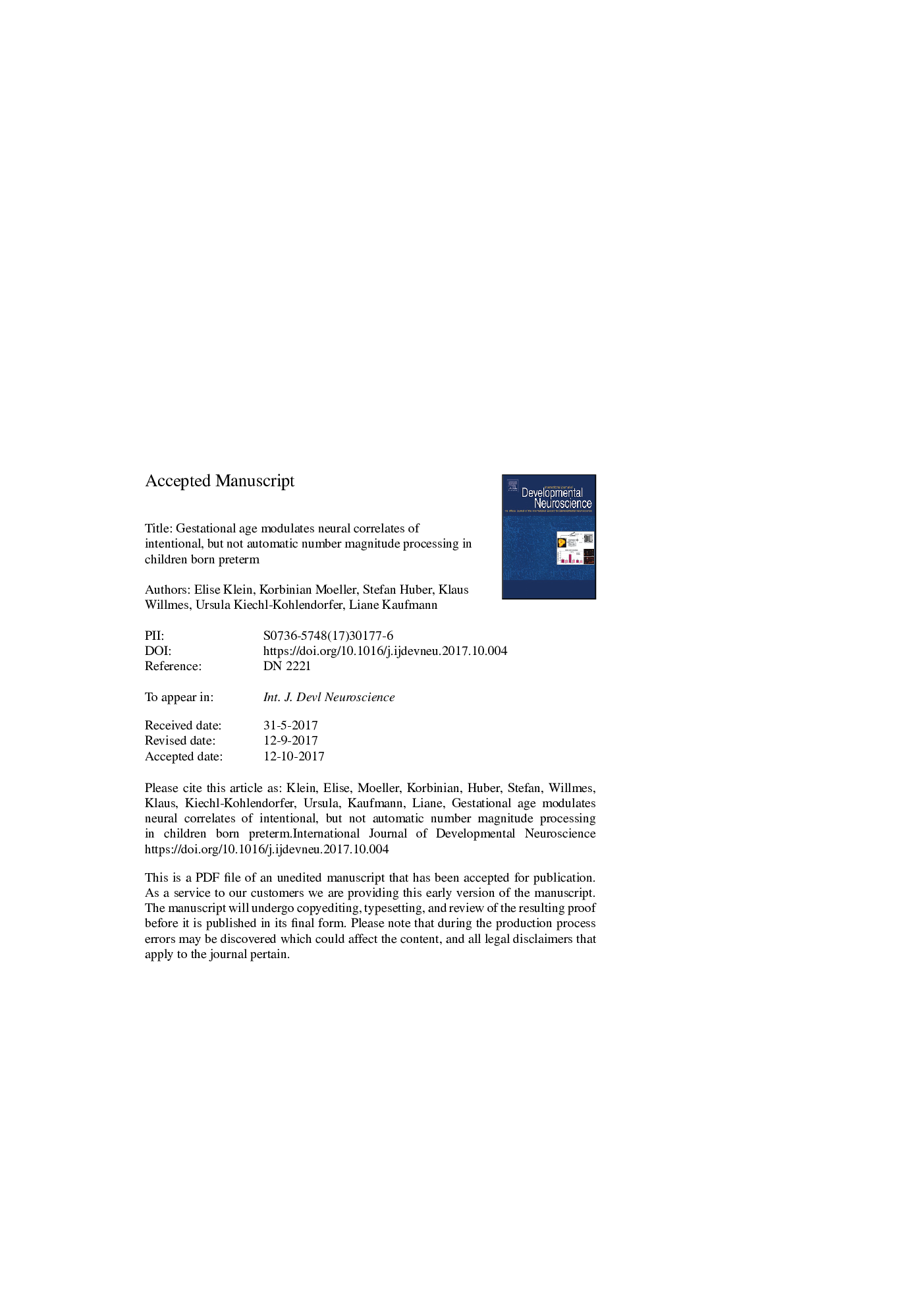| Article ID | Journal | Published Year | Pages | File Type |
|---|---|---|---|---|
| 8626123 | International Journal of Developmental Neuroscience | 2018 | 27 Pages |
Abstract
Premature birth is a significant risk factor for learning disabilities in general and mathematics learning difficulties in particular. However, the exact reasons for this relation are still unknown. While typical numerical development is associated with a frontal-to-parietal shift of brain activation with increasing age, influences of gestational age have hardly been considered so far. Therefore, we investigated the influence of gestational age on the neural correlates of number processing in 6- and 7-year-old children born prematurely (n = 16). Only the numerical distance effect - as a measure of intentional number magnitude processing - elicited the fronto-parietal activation pattern typically observed for numerical cognition. On the other hand, the size congruity effect - as a measure of automatic number magnitude processing - was associated with activation of brain areas typically attributed to cognitive control. Most importantly, however, we observed that gestational age reliably predicted the frontal-to-parietal shift of activation observed for the numerical distance effect. Our findings seem to indicate that human numerical development may start even before birth and prematurity might hamper neural facilitation of the brain circuitry subserving numerical cognition. In turn, this might contribute to the high risk of premature children to develop mathematical learning difficulties.
Related Topics
Life Sciences
Biochemistry, Genetics and Molecular Biology
Developmental Biology
Authors
Elise Klein, Korbinian Moeller, Stefan Huber, Klaus Willmes, Ursula Kiechl-Kohlendorfer, Liane Kaufmann,
